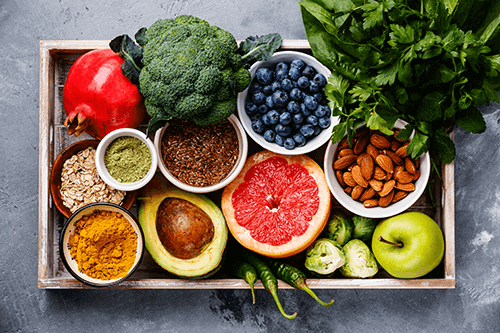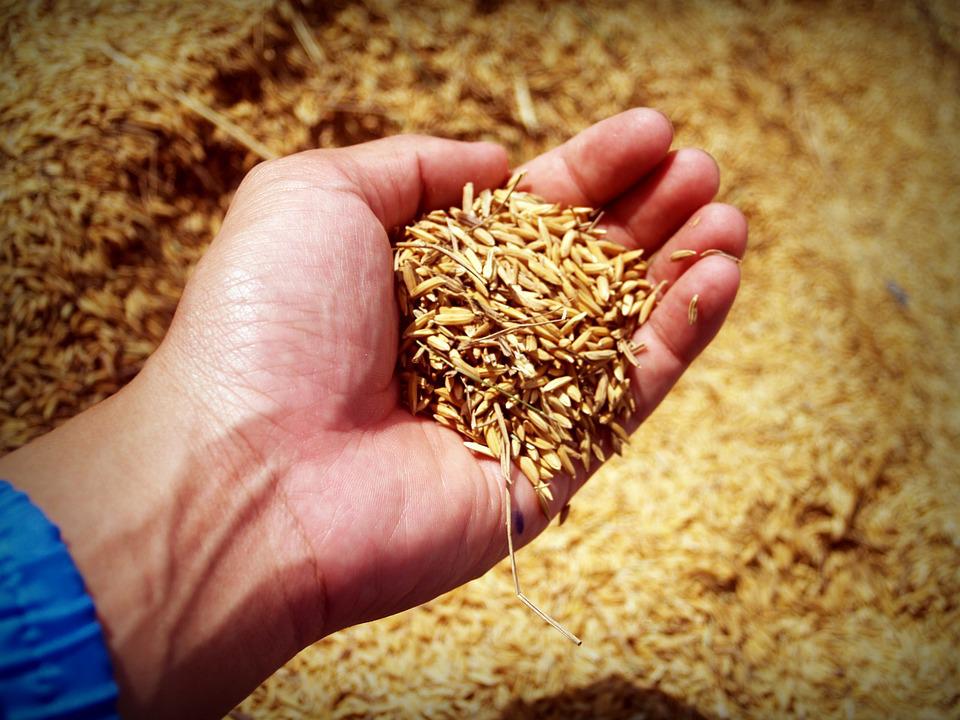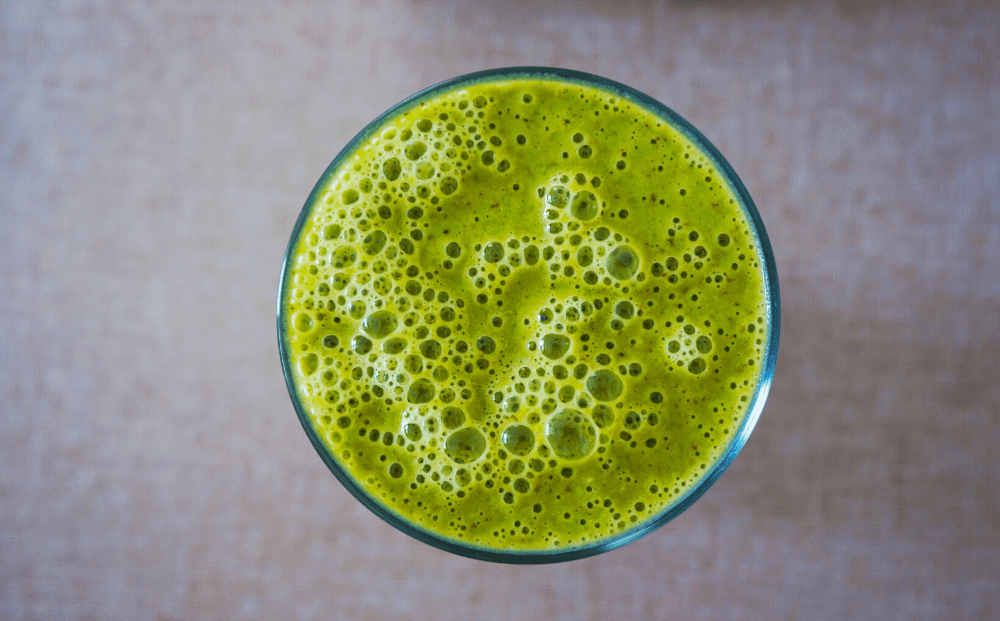
The Best Natural Relief For Acid Reflux
Normally when we eat, food travels through the esophagus and into the stomach, where it’s broken down by digestive acids. But sometimes that stomach acid travels back up the esophagus, leading to a burning sensation in your stomach, throat, or near your heart—hence acid reflux’s unofficial name, heartburn.
Most people have occasional bouts of reflux, usually from eating large meals, late-night snacking, or consuming certain foods. These reflux triggers work by either slowing digestion or relaxing the valve between the esophagus and stomach, called the lower esophageal sphincter (LES). When the LES doesn’t tighten as it should, stomach acid can flow back into the esophagus.
What is Gastroesophageal Reflux Disease, or GERD?
GERD (Gastroesophageal Reflux Disease) is a chronic form of heartburn. About 20% of the U.S. population suffers from GERD.
Without adequate treatment, the condition’s symptoms can lead to complications such as inflammation or narrowing of the esophagus. According to the American Cancer Society, people who have GERD can also develop a condition known as Barrett’s esophagus which puts them at a higher risk for esophageal cancer. Refluxed stomach acid can also enter the lungs, leading to respiratory problems.
How Can I Tell If I Have GERD?
GERD can refer to a mild form of acid reflux that occurs at least twice a week, or severe reflux episodes that occur at least once a week. Not everyone who develops GERD will experience heartburn. You may suffer from GERD if you have any of these symptoms:
- Chronic heartburn, chest pains and bloating after eating, which may be more severe at nighttime
- Belching, hiccups, and regurgitation after eating
- Difficulty swallowing and a full feeling at the base of the throat
- Chronic hoarseness or cough
- Poor sleep quality
- Asthma. Asthma and reflux often go hand-in-hand, though researchers don’t yet know which condition causes the other.
What Puts Me At Risk For GERD or Heartburn?
There are many risk factors for GERD—some are related to lifestyle, while others are side-effects of existing medical problems or prescriptions.
Lifestyle
Pregnancy Changing hormones during pregnancy slows down the digestive system. As the uterus expands, it can also push stomach acid into the esophagus, leading to bouts of heartburn or chronic GERD.
Stress Stress can delay stomach emptying, putting pressure on the LES, which then allows acid to flow back into the esophagus.
Overeating Overeating places pressure on the LES, which can lead to acid reflux. Fried and processed foods, in particular, are harder for the stomach to digest, leading to over-production of stomach acid.
Being overweight or obese Excess belly fat can put pressure on the LES and digestive organs, worsening GERD symptoms.
Smoking or exposure to secondhand smoke Smoking not only raises your esophageal cancer risk but also signals your stomach to produce more acid and prevents the LES from functioning properly, leading to GERD. Regular secondhand smoke exposure can also raise your risk of developing GERD.
Medical Complications
Enzyme deficiency Insufficient digestive enzymes can contribute to GERD. Conditions that inflame or damage the pancreas, such as alcohol abuse, celiac disease, or cystic fibrosis, can contribute to enzyme deficiency.
Drug side effects Some medications and mineral supplements can irritate the esophagus, worsening reflux pain. These include bisphosphonates used to treat postmenopausal osteoporosis, some antibiotics, iron or potassium supplements, and NSAID pain relievers.
Other medications may worsen GERD symptoms by actually increasing acid reflux. These medications include certain psychoactive medications, sedatives, hormonal medications, and high blood pressure and heart disease medications. Talk to your health care provider before you start any new medications to ensure that your treatment plan will not worsen your GERD symptoms.
Hiatal hernia A hiatal hernia happens when the upper portion of the stomach pushes through the diaphragm, blocking the LES from closing completely.
Severe osteoporosis Severe osteoporosis can cause posture changes that block food transit through the digestive system, leading to acid reflux. Medications to treat osteoporosis can also exacerbate GERD.
How Can I Make My GERD Symptoms Go Away Naturally?
The upside to the many risk factors involved in GERD is that there are also many ways to help reduce reflux frequency or severity.
Dietary Changes To Treat GERD
Foods to add Cultured foods like yogurt, kefir, and miso help cultivate healthy intestinal flora. Cooked vegetables are easier to digest than raw ones, so try lightly steaming yours—which also avoids added fat from cooking oil.
Enzyme-rich papaya (papain) and pineapple (bromelain) make for a refreshing dessert that may help your digestion. That said, papaya and pineapple’s effects on GERD aren’t well-studied, so make sure to listen to your body when adding in new foods.
Foods to avoid For long-term GERD prevention, eliminate fried foods and cut back on red meat—they slow the rate at which your stomach empties, allowing food to travel back to the esophagus. Also steer clear of refined carbohydrates and sugary foods—they boost gastric acidity. Garlic, onions, high-fat dairy, sodas, alcohol, and caffeine (especially coffee) can also contribute to flare-ups, and spicy foods can irritate the esophagus, worsening symptoms.
Herbs to try If you’d like to try herbal care for your GERD, look for balanced blends that include soothing chamomile, marshmallow root, and slippery elm, with stimulating ginger. Studies show that chamomile can help reduce stomach acid, while marshmallow root and slippery elm provide a mucous-like coating to protect the esophagus and stomach. Ginger, meanwhile, speeds up stomach emptying, decreasing the likelihood that acid will back up into your esophagus.
Lifestyle Changes To Reduce GERD Symptoms
- Try to eat when relaxed, at least three hours before bedtime.
- Eat smaller meals and chew food well.
- Don’t lie down after eating, or after drinking caffeinated or carbonated beverages
- Sleep with your head elevated by an extra pillow or two to prevent acid reflux at night.
- Don’t wear tight clothes that put pressure on the stomach
- Quit smoking. Smoking can increase the production of stomach acid.
- Lose weight Weight around the midsection can exert pressure on the stomach and push stomach contents back up the esophagus.
Ask For Help If You Need It
Talk to a health care provider if you’re having trouble managing your GERD. In some cases, a doctor may recommend laparoscopic surgery—a minimally invasive procedure that fixes the valve at the bottom of the esophagus.
But in most cases, a few self-care adjustments can bring relief: slowing down, altering your eating patterns, and giving yourself plenty of time to digest before bed with the help of gentle herbal remedies.








